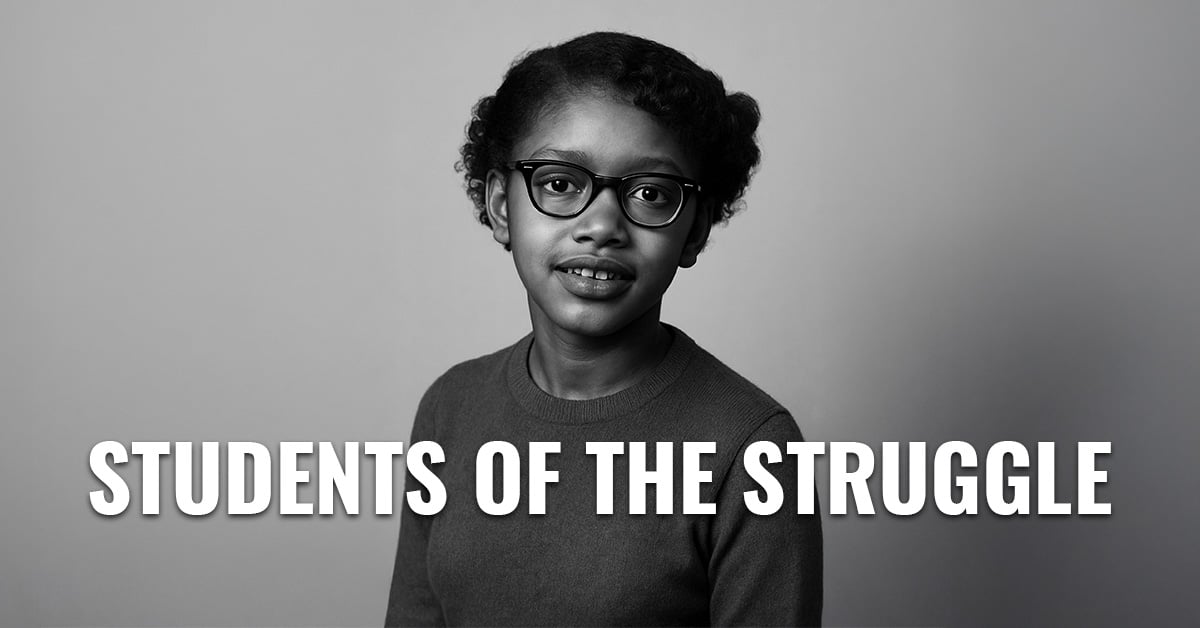The Teen Who Changed History
Before Rosa Parks became a household name, a 15-year-old girl in Montgomery, Alabama, quietly but fiercely defied injustice. Her name was Claudette Colvin, and on March 2, 1955, she refused to give up her seat on a segregated bus to a white passenger. Police dragged her into the street, arrested her, and jailed her — yet she did not break.
Claudette’s act of courage came nine months before Rosa Parks’ more famous stand, yet her story was almost erased. Why? Because she was young, unmarried, and soon became pregnant, civil rights leaders at the time feared that her image would not be seen as “appropriate” for the movement’s public face. But history has proven that her courage was foundational, setting the stage for the Montgomery Bus Boycott and, eventually, the landmark legal case Browder v. Gayle, which struck down bus segregation as unconstitutional.
“I felt the hand of Harriet Tubman pushing down on one shoulder and Sojourner Truth pushing down on the other,” Claudette later reflected — capturing the weight of history she carried as a teenager, and the power she summoned from the shoulders of the giants who came before her. Claudette reminds us that movements are never built by one figure alone. They are carried forward by ordinary people who step into extraordinary roles — often young people who refuse to wait for permission to act.
Early Life: Growing Up in Montgomery
Claudette Colvin was born on September 5, 1939, in Montgomery, Alabama, a city that would become one of the flashpoints of the modern Civil Rights Movement. Growing up in a tight-knit African American community, she experienced both the warmth of family and the daily sting of segregation.
She attended Booker T. Washington High School, where teachers and mentors encouraged her curiosity, intellect, and sense of justice. Her grandmother, in particular, instilled in her a deep understanding of African American history, storytelling, and resilience. Even at a young age, Claudette understood that freedom was not given; it was claimed — and she carried that lesson into every classroom, street, and bus she entered.
In Montgomery, African American children lived under Jim Crow laws that enforced segregation in schools, buses, restaurants, and public spaces. But the young Claudette observed the courage of everyday adults who resisted in small ways — standing up to insults, speaking truth to authority, and caring for their communities. These lessons would prepare her for a moment that would make history.
The Bus Incident: Courage at Fifteen
On March 2, 1955, Claudette Colvin boarded a city bus after school. Like many African Americans at the time, she sat in the “colored” section. When a white passenger demanded her seat, Claudette refused.
Accounts of the arrest paint a chilling picture: she was grabbed, shoved, and thrown to the floor, her body bruised, her dignity under attack. Yet, even in the face of physical intimidation and threats, she did not break. She was fourteen going on fifteen, yet her resolve rivaled that of adults who had lived through decades of oppression.
Claudette’s defiance was not an isolated act of rebellion; it was a statement of principled resistance. At a time when African Americans were told to stay in their place, Claudette refused — not for attention, but because she knew that injustice demanded confrontation.
Her arrest became part of the legal strategy that would later dismantle segregation on Montgomery buses. Claudette was one of several young women plaintiffs in Browder v. Gayle, which culminated in the Supreme Court ruling that declared bus segregation unconstitutional.
“I knew it was wrong. And I wasn’t going to stand for it,” Claudette said years later, recalling the clarity and courage of her teenage self.
Students of the Struggle: Youth in Action
Claudette’s story illuminates a critical truth: movements thrive when young people refuse to wait their turn. The “Students of the Struggle” are everywhere — in classrooms, libraries, family kitchens, and community centers — asking bold questions, challenging authority, and imagining a better world.
From the Freedom Riders who risked their lives to integrate interstate buses to the young leaders of the modern climate justice and racial equity movements, youth have always been at the vanguard of change. Claudette reminds us that courage is not measured by age, but by conviction.
Her defiance was a lesson in strategy and dignity: she understood the importance of timing, the legal implications of her act, and the need to stand tall under scrutiny. She was not a passive participant; she was a student of the struggle — learning, observing, and acting in ways that would ripple through history.
Challenges of Visibility and Representation
One reason Claudette Colvin’s story was not widely celebrated at the time was society’s narrow definition of who could represent a movement. She was young, unmarried, and soon became pregnant, which made civil rights leaders hesitant to put her in the public spotlight. Rosa Parks, by contrast, was seen as the “acceptable” face — older, dignified, and married.
Yet Claudette’s story challenges this narrative. It teaches us that history often erases the young, the women, and the unpolished leaders, even when their actions are pivotal. By remembering Claudette, we honor the untold contributions of countless youth who step forward quietly yet decisively, shaping the course of movements and societies.
Cultural Connections
Claudette’s impact extends far beyond Montgomery. Across the African diaspora, youth activism has always been a catalyst for change. In South Africa, children led boycotts against apartheid-era schools. In the Caribbean, young people resisted colonial labor systems and segregation. In the United States today, high school students organize rallies, push for environmental justice, and challenge systemic inequities.
Claudette’s courage reminds us that education is empowerment. Classrooms, youth organizations, and family gatherings are incubators for leaders who will reshape the world. When young people learn history, ask bold questions, and organize collectively, society moves faster than anyone anticipates. Her story is a blueprint: resistance, knowledge, and strategy are inseparable.
Legacy: Preparing the Next Claudette
Claudette Colvin passed away on January 13, 2026, but her courage lives on through every young person who refuses to accept injustice as normal.
Claudette Colvin’s life asks a simple yet profound question: how are we nurturing the next generation of young leaders? Her bravery proves that youth do not need permission to act. They need mentorship, protection, and opportunities to learn and lead.
Today, movements for justice continue to be powered by young people. They use social media, art, storytelling, and grassroots organizing to demand equity, protect communities, and push society forward. Claudette’s example reminds adults that creating space for youth is not optional — it is essential for progress.
Her legacy is alive in every teenager who picks up a pen to challenge lies, every young person who marches for justice, every student who refuses to be silent in the face of oppression. She is a reminder that clarity, courage, and conviction are enough to spark change, no matter your age.
Reflection Questions
What skills help youth organize safely and effectively?
How are we mentoring and protecting young leaders right now?
How can families, schools, and communities create environments that cultivate courage and resilience in young people?
Who are the “unsung” youth in your community whose actions deserve recognition?
Explore Her Legacy
Prepare and empower the next generation:
👉🏾 Sankofa Club (Children’s Education) – designed to inspire, teach, and equip young leaders through history, games, and reflection.
📚 Get your deck today.»
Join the conversation at Sankofa Universe, share your reflections using #ReclaimTheFlame, and honor the youth who carry the fire forward — because the next Claudette Colvin is already among us, learning, organizing, and preparing to change the world.
💬 Let’s Talk:
Had you heard of Queen Nanny before this? What lessons can we take from her leadership today?
👇 Drop a comment and share this with someone who needs to know our real history.



















0 Comments